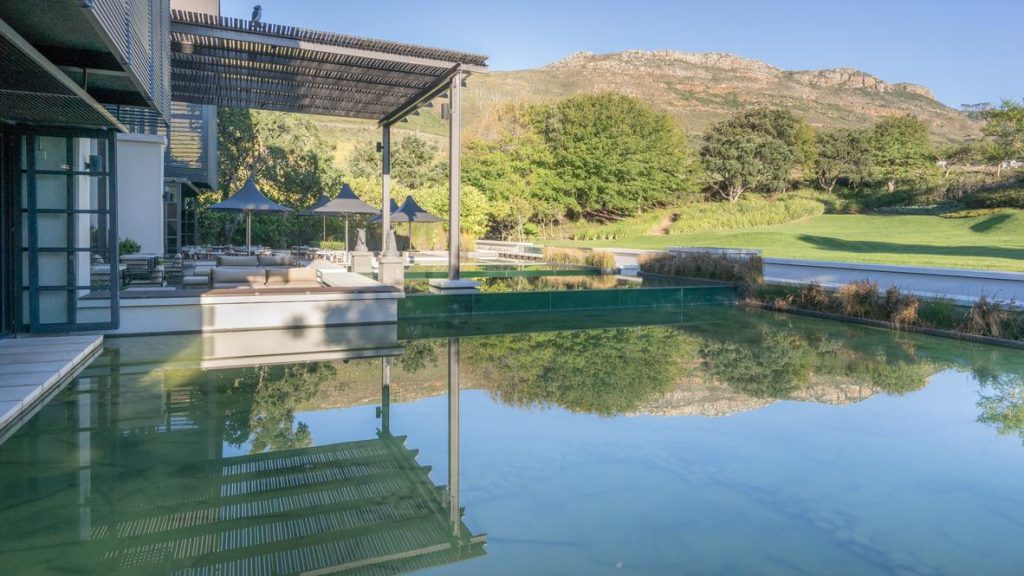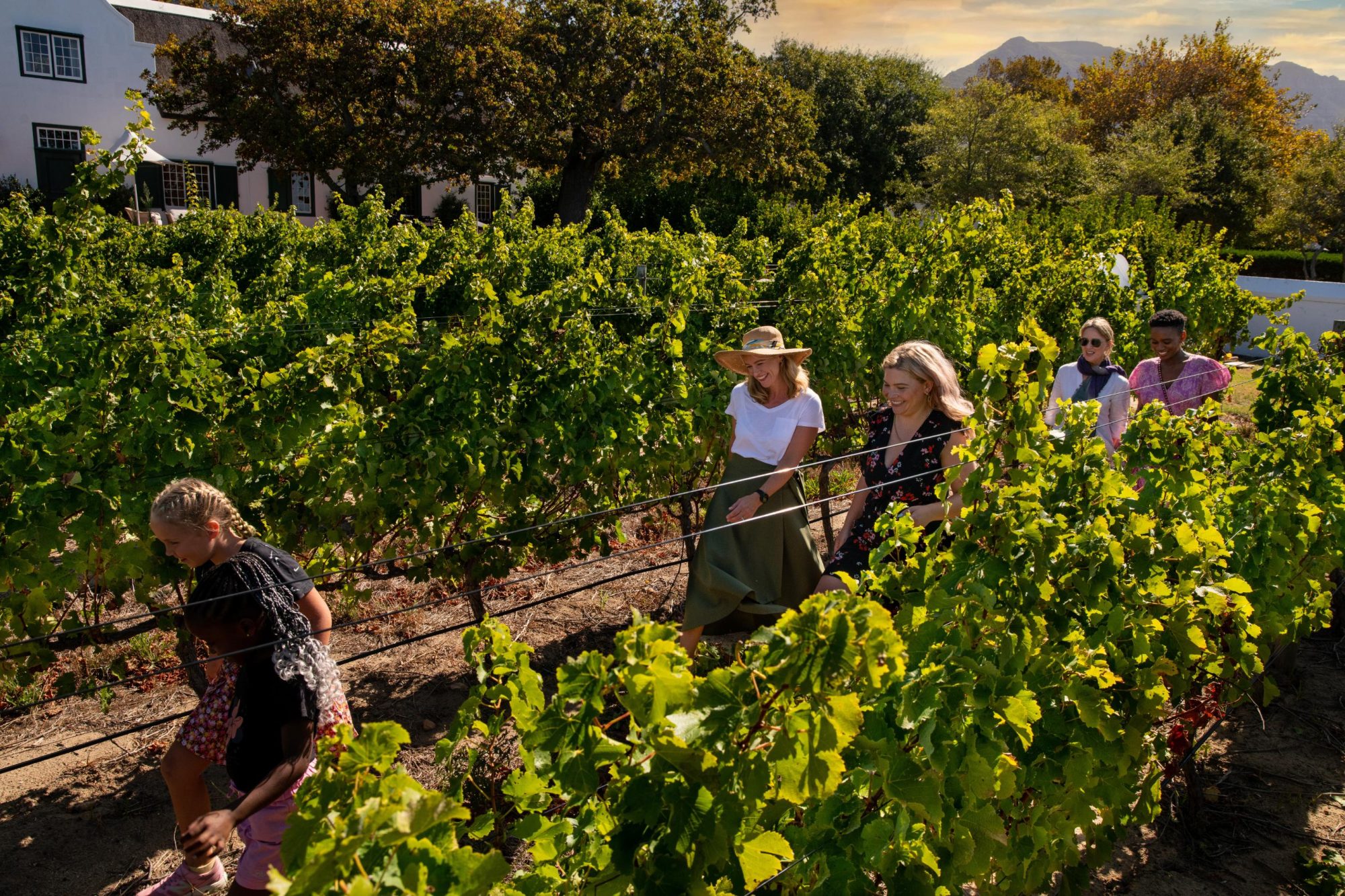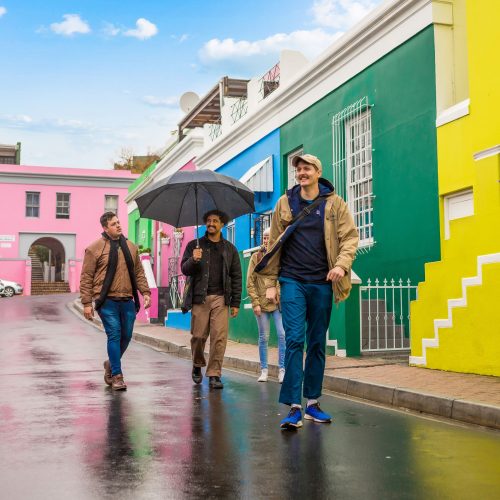71% of affluent travellers now prioritise emotional connection and storytelling over traditional luxury cues like décor or branding (Skift’s 2024 State of Luxury Travel). For this new wave of high-net-worth travellers, the most valued experiences are those with cultural resonance, authenticity, and personal relevance. Modern luxury is less about chandeliers and marble bathrooms and more about heritage, identity, and the stories a place can tell.
Catherine Schulze, Managing Director of Hospitality at Steenberg Farm shares an example, “At Steenberg, guests still notice the high-end finishes, but what really engages and brings the property to life are the tales of Catharina Ras , our founder who established Steenberg in 1682 despite lions, lawsuits, and other challenges.” The spirit that continues to live on in the community and on the farm that keeps her spirit alive and well.
The narrative of the vineyard’s ‘black swans’ or Catharina’s extraordinary life leaves a more lasting impression than any polished surface. Research confirms that two-thirds of affluent consumers prioritise purpose-driven experiences over possessions (Business Insider), and a third of luxury travellers will pay more for experiences aligned with their values (Mastercard Luxury Insights).
Neuroscience also shows that emotionally charged moments imprint deeper and last longer than neutral ones.
Luxury is now measured in stories rather than objects. Travellers seek destinations that reflect history, culture, and local identity, with authenticity and sustainability taking precedence over conspicuous display. “Exclusivity now comes from privacy, meaningful experiences, and a connection to place,” Schulze says.
Heritage sites and working estates are increasingly popular because they offer depth rather than superficial luxury. “Five years ago, the focus was on how many destinations you could tick off. Today, it is about which will leave a lasting impact,” notes Carryn Wiltshire, Marketing Manager of Wine at Steenberg Farm. She highlights that a working wine farm also adds an extra layer of engagement: guests connect not only with the estate’s history but also with the rhythms of the land, the harvest, and nature itself.



This shift is closely tied to slow travel. Extended stays allow guests to move from observers to participants, affording them the opportunity, for e.g., to join a barrel tasting, journal among the vines at dawn, or spend quiet afternoons in the spa garden. “Depth replaces breadth,” says Schulze. “A longer stay enables meaningful experiences that leave a lasting impression and support deeper engagement with the property.”
“For us, wine tasting is storytelling,” Wiltshire continues. “Our ambassadors weave the vineyard’s history into every tasting. Guests don’t just taste the wine; they understand the soil it comes from, the heritage behind its name, and the resilience of the woman who shaped it. Those stories create a sense of belonging.”
Wiltshire adds, “Our goal is to create a sense of barefoot elegance that allows guests to connect deeply with the land, the wine, and the stories without anything feeling artificial.”
This shift is reflected by other luxury destinations, both locally and abroad. Spier Wine Estate in Stellenbosch celebrates “stories in every sip,” while the Red Carnation Hotel Collection (a collection of properties around the world) describes each property as “a living story, rooted in family, rich in character, and crafted with a deep sense of place.”
However, even with a focus on storytelling and immersion, balance is key. Guests seek authenticity but also ease. “Too much curation feels sterile, too little leaves people adrift,” Schulze notes, pointing to the industry-wide concern of “beige-ification,” where luxury hotels risk becoming overly neutral and generic (Travel and Tour World). The sector continues to navigate this tension as it shifts from generic luxury to layered, grounded experiences.
For luxury brands, the lesson is clear: the future is defined by purpose, not polish. Properties that embed heritage, culture, and personal relevance into every touchpoint are the ones that resonate most. Publishing a property’s cultural or ecological impact, involving guests in the story, and offering experiences that align with their values have become the new signals of exclusivity.
“It’s the story that stays with guests long after the visit,” concludes Schulze. This shift reflects a broader trend in luxury hospitality, where heritage, cultural resonance, and meaningful engagement are becoming the true markers of value.
For more articles like this click here.
If you enjoyed this website then check out our other sites: Wedding and Function, Kids Connection, Thirsty Traveler, Boat Trips for Africa, Bargain Buys, Business Link.
Need help with your online marketing then visit Agency One.







